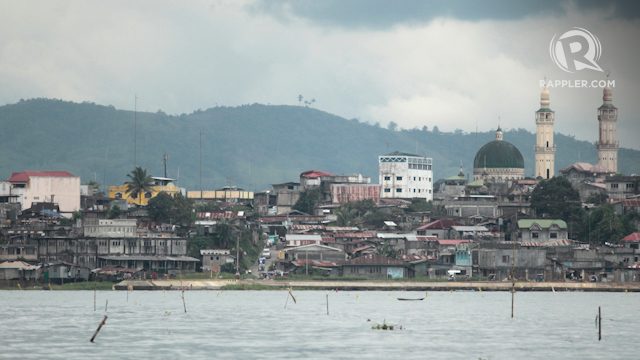SUMMARY
This is AI generated summarization, which may have errors. For context, always refer to the full article.

MANILA, Philippines – The National Grid Corporation of the Philippines (NGCP) on Thursday, August 28, warned that blackouts would continue to occur in areas with perennial right-of-way (ROW) problems.
For instance, the 26.5-km Baloi-Marawi 69-kilovolt (kV) line in Lanao del Norte, which transmits power to Lanao del Sur Electric Cooperative (LASURECO) and Mindanao State University (MSU), frequently trips because residents intentionally plant trees along the line.
The line tripped 8 times in June resulting in blackouts lasting 40 minutes to almost 5 hours. “In the end, it is the consumers who suffer,” NGCP president Henry Sy Jr. said in a statement.
According to NGCP, landowners deliberately plant along their lines to demand unreasonable amounts in exchange for permission to enter their properties during line maintenance.
As a result, line clearing and maintenance take longer for NGCP personnel.
“ROW violations add to our maintenance cost because we have to clear up the lines before we maintain or repair it. Our personnel also have to extend working hours to finish these activities,” Sy added.
The NGCP said it regularly conducts information campaign among local media and host communities on the ROW issue. It also seeks local government units’ assistance to solve the problem.
ROW violation a perennial issue
This is not the first time that the NGCP warned against ROW violations.
After Typhoon Glenda (Rammasun) made landfall in Luzon, the NGCP urged local government units in Bicol region to persuade landowners to allow linemen repair the power facilities that collapsed within their properties amid ROW disputes.
Bicol suffered total blackout when Glenda unleashed its wrath in July. Three provinces in the region were placed under state of calamity as 15,000 families were displaced by the typhoon.
NGCP said residents living near their lines ignore their warnings, and continue to plant trees along them.
The refusal of some landowners in Bicol to cooperate with NGCP prolonged the power restoration process, Sy previously said.
In Bicol, NGCP said 9 electrical structures collapsed within properties with ROW issues during the height of Glenda.
Electrical facilities had to be replaced, mostly comprised of “aging” wood poles.
“The landowners were warned by NGCP that the breakdown of ageng wood pole structures within their properties would result in the loss of bulk power supply to Naga City and western municipalities of Camarines Sur,” NGCP previously said.
ROW negotiations are ongoing for 12 structures of Naga-Naga and Naga-Libmanan 69-kV double circuit lines and 3 structures of Naga-Labo, NGCP said.
NGCP is a privately owned corporation in charge of operating, maintaining, and developing the country’s power grid. It transmits high-voltage electricity through “power superhighways” that include the interconnected system of transmission lines and towers, sub-stations, and related assets. – Rappler.com
Add a comment
How does this make you feel?
There are no comments yet. Add your comment to start the conversation.